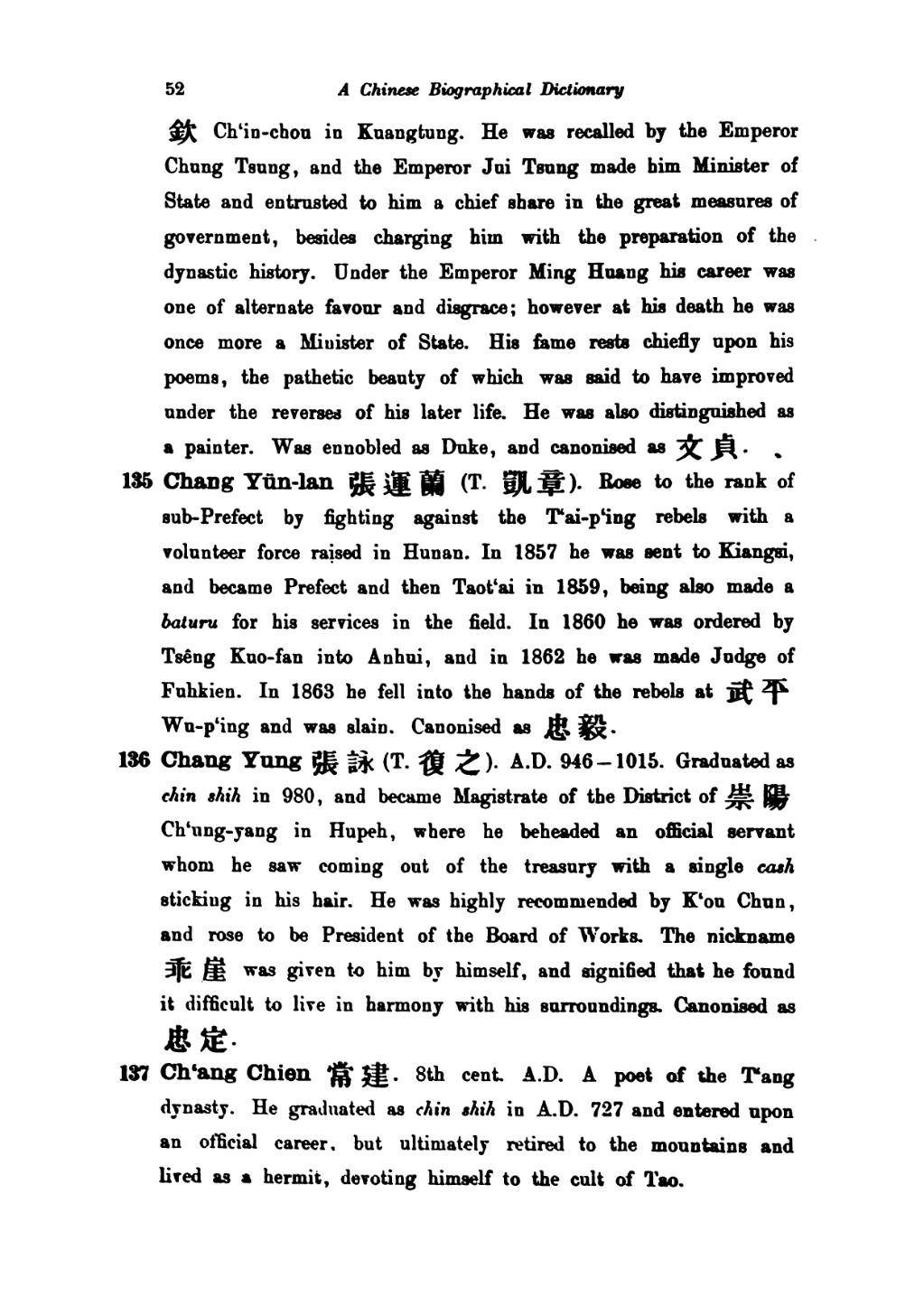欽 Ch'in-chou in Kuangtung. He was recalled by the Emperor Chung Tsung, and the Emperor Jui Tsung made him Minister of State and entrusted to him a chief share in the great measures of goyernment, besides charging him with the preparation of the dynastic history. Under the Emperor Ming Huang his career was one of alternate favour and disgrace; however at his death he was once more a Minister of State. His fame rests chiefly upon his poems, the pathetic beauty of which was said to have improved under the reverses of his later life. He was also distinguished as a painter. Was ennobled as Duke, and canonised as 文貞.
135 Chang Yün-lan 張運蘭 (T. 凱章). Rose to the rank of sub-Prefect by fighting against the Tai-p'ing rebels with a volunteer force raised in Hunan. In 1857 he was sent to Kiangsi, and became Prefect and then Taot'ai in 1859, being also made a baturu for his services in the field. In 1860 he was ordered by Tsêng Kuo-fan into Anhui, and in 1862 he was made Judge of Fuhkien. In 1863 he fell into the hands of the rebels at 武平 Wu-p'ing and was slain. Canonised as 忠毅.
136 Chang Yung 張詠 (T. 復之). A.D. 946-1015. Graduated as chin shih in 980 , and became Magistrate of the District of 崇陽 Ch'ung-yang in Hupeh, where he beheaded an official servant whom he saw coming out of the treasury with a single cash sticking in his hair. He was highly recommended by K'ou Chun, and rose to be President of the Board of Works. The nickname 乖崖 was given to him by himself, and signified that he found it difficult to live in harmony with his surroundings. Canonised as 忠定.
137 Ch'ang Chien 常建. 8th cent A.D. A poet of the T'ang dynasty. He graduated as chin shih in A.D. 727 and entered upon an official career, but ultimately retired to the mountains and lived as a hermit, devoting himself to the cult of Tao.

